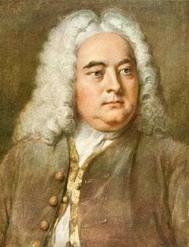Annotation:Let Me Wander: Difference between revisions
No edit summary |
m (Text replacement - "garamond, serif" to "sans-serif") |
||
| (2 intermediate revisions by one other user not shown) | |||
| Line 1: | Line 1: | ||
'''Back to [[{{BASEPAGENAME}}]]''' | '''Back to [[{{BASEPAGENAME}}]]''' | ||
---- | ---- | ||
<p><font face=" | <p><font face="sans-serif" size="4"> | ||
'''LET ME WANDER''' (Not Unseen). English, Air (12/8 time). D Minor. Standard tuning (fiddle). One part. The air was composed by classical composer Georg Friedrich Händel for his ode "L'Allegro, Il Penseroso Ed Il Moderate" (1740). It appears in a number of 18th century publications and copybooks, including Eleazer Cary's copybook (c. 1797-99), the John Simpson manuscript (1750), '''Amaryllis''' (1760), '''Calliope''' (1746), '''Clio and Euterpe''' (or '''British Harmony''', vol. 3, 1762), and '''Vocal Music of the Songster's Companion''' (1778). | '''LET ME WANDER''' (Not Unseen). English, Air (12/8 time). D Minor. Standard tuning (fiddle). One part. The air was composed by classical composer Georg Friedrich Händel [http://en.wikipedia.org/wiki/George_Frideric_Handel] for his ode "L'Allegro, Il Penseroso Ed Il Moderate" (1740). | ||
[[File:handel.jpg|200px|thumb|left|Georg Friedrich Händel (1685-1759)]] | |||
It appears in a number of 18th century publications and copybooks, including Eleazer Cary's copybook (c. 1797-99), the John Simpson manuscript (1750), '''Amaryllis''' (1760), '''Calliope''' (1746), '''Clio and Euterpe''' (or '''British Harmony''', vol. 3, 1762), and '''Vocal Music of the Songster's Companion''' (1778). | |||
<blockquote> | <blockquote> | ||
''Let me wander, not unseen''<br> | ''Let me wander, not unseen''<br> | ||
| Line 14: | Line 16: | ||
</blockquote> | </blockquote> | ||
</font></p> | </font></p> | ||
<p><font face=" | <p><font face="sans-serif" size="4"> | ||
''Source for notated version'': | ''Source for notated version'': | ||
<br> | <br> | ||
<br> | <br> | ||
</font></p> | </font></p> | ||
<p><font face=" | <p><font face="sans-serif" size="4"> | ||
''Printed sources'': Geoghegan ('''Compleat Tutor for the Pastoral or New Bagpipes'''), c. 1745-46; p. 30. | ''Printed sources'': Geoghegan ('''Compleat Tutor for the Pastoral or New Bagpipes'''), c. 1745-46; p. 30. | ||
<br> | <br> | ||
<br> | <br> | ||
</font></p> | </font></p> | ||
<p><font face=" | <p><font face="sans-serif" size="4"> | ||
''Recorded sources'': <font color=teal></font> | ''Recorded sources'': <font color=teal></font> | ||
</font></p> | </font></p> | ||
Latest revision as of 14:15, 6 May 2019
Back to Let Me Wander
LET ME WANDER (Not Unseen). English, Air (12/8 time). D Minor. Standard tuning (fiddle). One part. The air was composed by classical composer Georg Friedrich Händel [1] for his ode "L'Allegro, Il Penseroso Ed Il Moderate" (1740).

It appears in a number of 18th century publications and copybooks, including Eleazer Cary's copybook (c. 1797-99), the John Simpson manuscript (1750), Amaryllis (1760), Calliope (1746), Clio and Euterpe (or British Harmony, vol. 3, 1762), and Vocal Music of the Songster's Companion (1778).
Let me wander, not unseen
By Hedge-row elms, on hillocks green.
There the ploughman, near at hand,
Whistles over the furrow'd land,
And the milkmaid singeth blithe,
And the mower whets his scythe,
And every shepherd tells his tale
Under the hawthorn in the dale.
Source for notated version:
Printed sources: Geoghegan (Compleat Tutor for the Pastoral or New Bagpipes), c. 1745-46; p. 30.
Recorded sources:
Back to Let Me Wander
